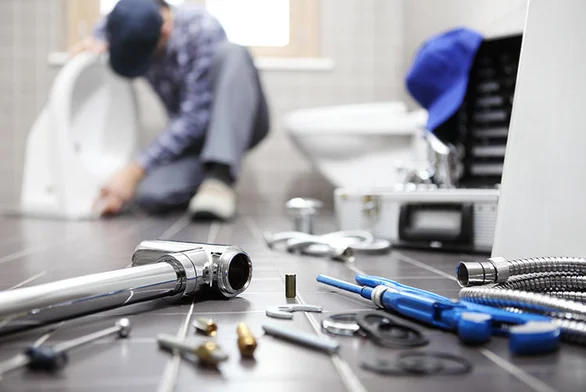Essential Property Repair Deductions

As a property owner, understanding essential repair deductions can significantly impact your finances. You need to distinguish between repairs and improvements, as this distinction affects your tax benefits. By knowing how to categorize your expenses, you can take advantage of immediate deductions. But there’s more to consider, and the stakes can be high if you misclassify. Let’s explore how to maximize your deductions and what you need to keep in mind.
Understanding the Difference Between Repairs and Improvements
When you manage a rental property, understanding the difference between repairs and improvements is crucial, as it directly impacts your tax deductions.
Rental property repairs are necessary to maintain the property’s original condition, like fixing leaks or replacing broken fixtures. So,can you write off repairs on rental property in full during the year they occur? Yes, and you will have immediate tax benefits.
In contrast, improvements enhance property value, requiring depreciation over 27.5 years.
So, how much can you write off for repairs on rental property? It’s essential to classify expenses correctly to maximize your deductions and avoid penalties.
Misclassifying can jeopardize your tax benefits, so ensure you know the distinction for effective property management.
See also: Your Home’s Best Defense: The Benefits of a New Gutter System
Immediate Deductions for Repairs
Although many landlords overlook the tax advantages of timely repairs, you can fully deduct the costs in the year they’re incurred. This immediate deduction applies to necessary repairs and maintenance rental property requires, such as fixing leaks or patching walls.
By addressing repairs promptly, you not only maintain your property but also enhance your cash flow during tax season. It’s essential to distinguish these deductible repairs from improvements, which must be depreciated over time.
Keeping thorough records of all repairs will help streamline your tax filings and ensure you maximize these deductions. Remember, timely repairs can significantly benefit your financial strategy, so don’t let the opportunity slip away.
Depreciation of Property Improvements
Depreciation is a crucial aspect of managing property improvements, as it allows you to recover the cost of enhancements over time.
When you make significant upgrades, like installing a new roof or upgrading your HVAC system, you can’t deduct the full cost in the year you spend it. Instead, you’ll need to depreciate these costs over 27.5 years for residential properties.
This means you’ll get a portion of that expense back each year, reflecting how the property wears down. Understanding this process helps you strategize your financial planning and tax benefits effectively.
Keep in mind, you should always differentiate between repairs, which can be fully deducted immediately, and improvements that require depreciation.
Importance of Accurate Record Keeping
Accurate record keeping is essential for landlords, as it directly impacts your ability to classify expenses correctly and maximize tax deductions. When you maintain organized records, you can easily differentiate between repairs and improvements, ensuring you take advantage of immediate deductions. This clarity helps you avoid costly mistakes during tax season.
Keep meticulous documentation of all expenses, including invoices, receipts, and maintenance logs. Regularly update these records to reflect any tenant complaints or resolutions. Using property management software can streamline this process, making it easier to access information when needed.
Good record keeping not only aids in tax preparation but also strengthens your overall property management strategy, giving you peace of mind and financial clarity.
Timing Your Repairs for Maximum Tax Benefits
Maintaining organized records not only helps you classify expenses but also plays a significant role in timing your repairs for maximum tax benefits.
Focus on making repairs after your property is ready for rent, as these expenses can be fully deducted in the year they’re incurred. If you make repairs before renting, you can’t deduct them as operating expenses, which diminishes your tax benefits.
By strategically scheduling your repairs, you can ensure they align with your rental timeline, allowing for immediate deductions. Keep track of all repair dates and expenses meticulously to provide clear documentation.
This proactive approach will maximize your tax savings and enhance your overall financial strategy as a property owner.
Utilizing Technology for Property Management
As you navigate the complexities of property management, leveraging technology can significantly streamline your processes and enhance efficiency. Property management software allows you to track maintenance requests, schedule repairs, and maintain organized financial records—all in one place.
You can automate tenant communication, ensuring timely responses and improved satisfaction. Using apps for expense tracking helps you categorize and document repairs versus improvements effectively.
Additionally, implementing digital calendars for maintenance schedules aids in timely inspections and preventative measures. Cloud-based storage keeps all your important documents accessible and secure, making it easier to prepare for tax season.
Embracing these tools not only saves time but also helps you stay compliant and maximize your property’s potential.
Seeking Professional Guidance for Tax Compliance
While navigating the complexities of tax compliance, seeking professional guidance can be invaluable for landlords. Consulting a tax advisor or accountant experienced in rental properties helps you understand deductions, avoid pitfalls, and ensure you’re following IRS guidelines.
They can clarify the distinction between repairs and improvements, ensuring you classify expenses correctly for maximum tax benefits. Regular check-ins with a professional can keep you updated on changing tax laws, helping you adapt your strategies accordingly.
Additionally, they can assist with organizing your financial records, making tax season less stressful. By leveraging expert advice, you’ll not only enhance compliance but also optimize your financial outcomes, allowing you to focus more on managing your properties effectively.
Conclusion
Understanding the difference between repairs and improvements is key to maximizing your tax deductions. By taking immediate deductions for necessary repairs and accurately tracking your expenses, you can enhance your cash flow and streamline your tax filings. Don’t forget to time your repairs wisely and consider using technology for better management. Lastly, seeking professional guidance can ensure you stay compliant while making the most of your property investment. Start optimizing your deductions today!





